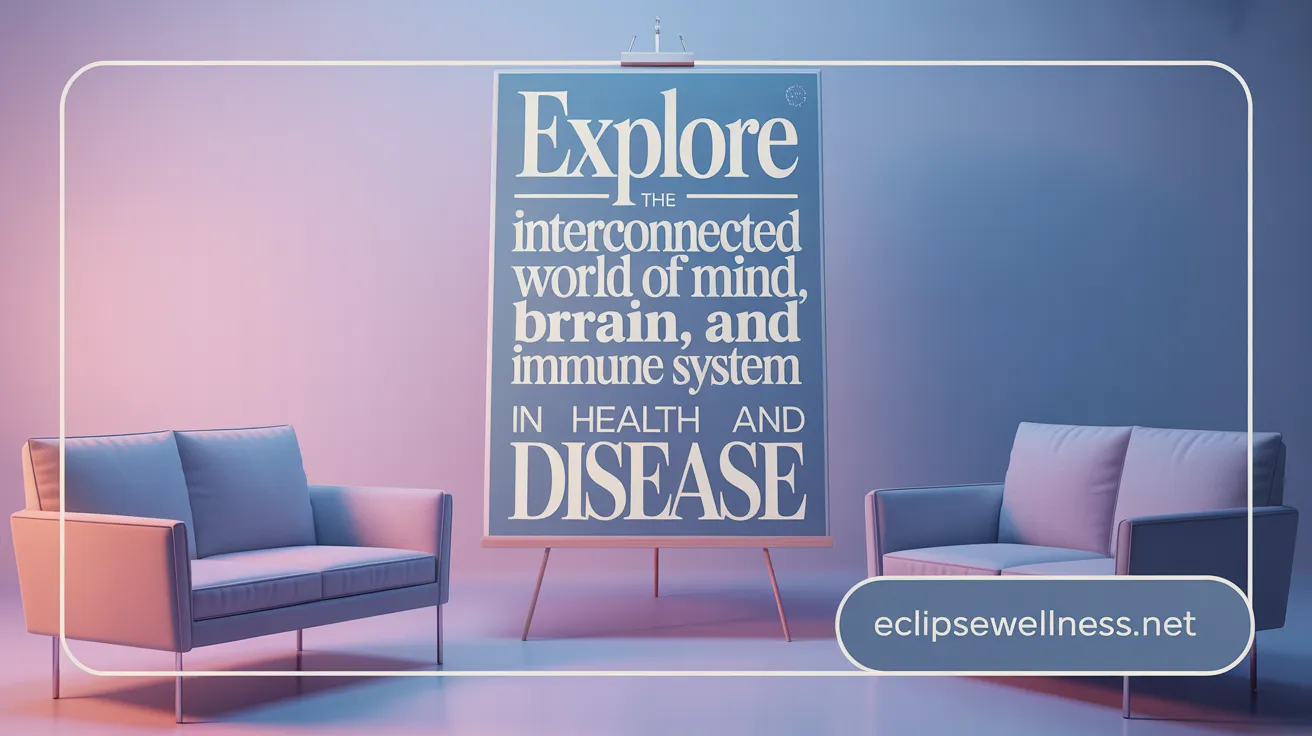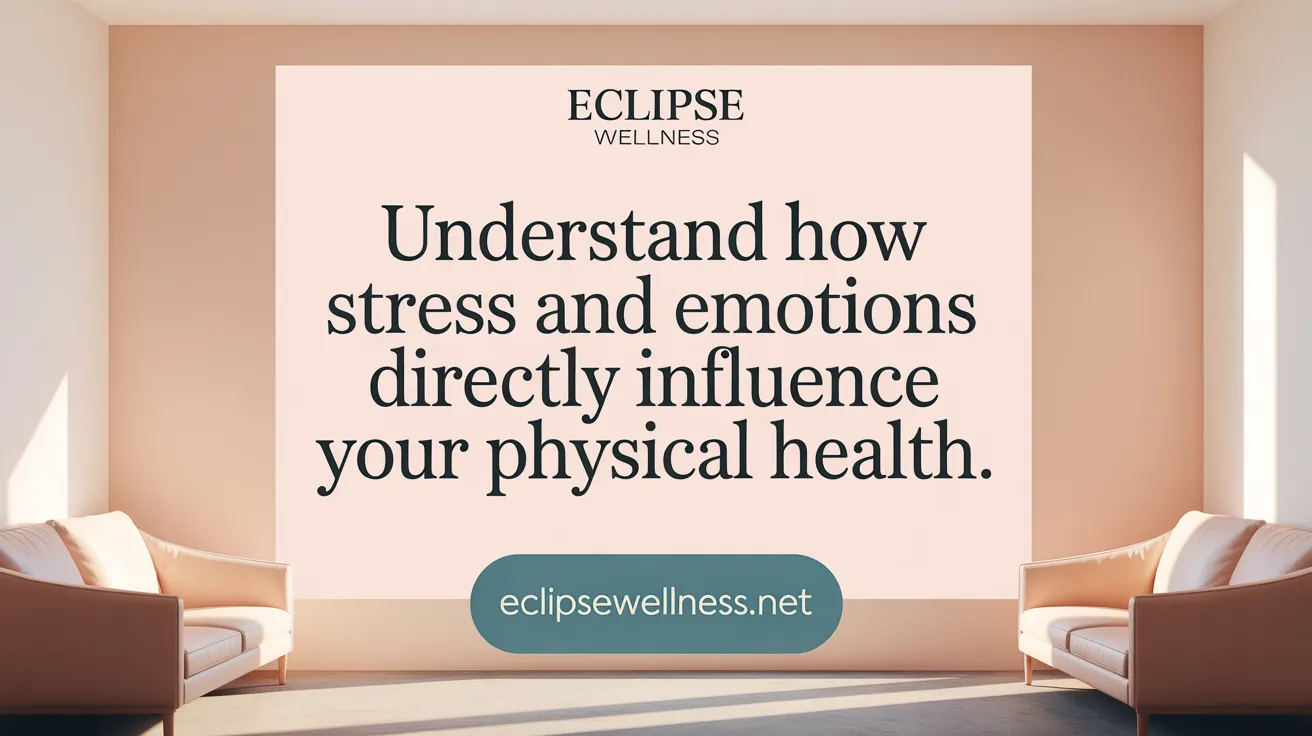Introduction to the Mind-Body Interplay
The mind-body connection reveals the complex and profound relationship between our mental states and physical health. Tracing back to philosophical and ancient medical traditions, modern science now substantiates this link through advances in neuroscience, psychology, and immunology. Understanding this connection helps explain how emotions, thoughts, and behaviors influence diseases, recovery, and overall well-being, offering valuable insights for holistic health strategies.
Historical and Philosophical Foundations of the Mind-Body Connection
What are the historical roots of the mind-body connection?
The mind-body connection is an ancient concept with roots tracing back to classical Greece. Philosophers like Plato and Aristotle on mind-body viewed the body as a vessel for the soul, emphasizing the immaterial mind's primacy. Aristotle, on the other hand, considered the mind as the seat of consciousness, highlighting a more integrated relationship between mental and physical aspects.
Parallel to these Western ideas, traditional Chinese medicine and Qi developed a holistic understanding of health centered on Qi, or vital energy. TCM holds that mental and physical health depend on the balanced flow of Qi. Treatments such as acupuncture and herbal medicine and lifestyle adjustments aim to restore this harmony, reflecting an early appreciation of the mind-body interconnection.
The Renaissance period marked a resurgence of interest in mind-body relationships in Western medicine. René Descartes introduced Descartes' dualism, suggesting that mind and body are distinct but interact. In the 19th century, psychosomatic medicine history emerged, focusing on how psychological factors influence physical health. These developments laid the groundwork for modern interdisciplinary research into mind-body health.
Today’s understanding builds upon these historical perspectives, blending ancient wisdom with scientific inquiry into mind-body connection to explore how mental states impact physiological processes and overall well-being.
Neuroscience Perspectives: The Structural Basis of Mind-Body Integration

How does modern neuroscience explain the mind-body connection?
Modern neuroscience uncovers a fascinating structural basis for the mind-body connection within the brain. Recent research shows that brain regions controlling voluntary movement are intricately connected to areas responsible for cognition, planning, and autonomic regulation — including functions like heartbeat and blood pressure control.
Discovery of the Somato-Cognitive Action Network (SCAN)
A key breakthrough is the identification of the Somato-Cognitive Action Network (SCAN). SCAN is a brain-wide network linking classical motor control areas with regions involved in higher cognitive processes and bodily regulation. This network integrates planning, purposeful behavior, and the body's involuntary functions, enabling direct communication between mind and body.
Implications for understanding anxiety, depression, and bodily regulation
SCAN provides biological insight into how bodily states affect mental states. For instance, it explains behaviors seen in anxiety, such as pacing, by connecting movement control with emotional and physiological centers. The network also sheds light on why calming practices like controlled breathing or vagus nerve stimulation can improve symptoms of depression and anxiety by influencing this integrated system (mind-body connection and anxiety).
Developmental and evolutionary perspectives
Developmentally, SCAN emerges early in childhood, becoming well established by the age of nine, and is notably absent in newborns. Comparative studies suggest that this network has evolved to support complex human cognition and emotional regulation, building upon simpler physiological regulation functions seen in other primates (brain evolution and mind-body link).
The Somato-Cognitive Action Network thus illustrates how the brain structurally embodies mind-body integration, linking motor control, cognition, and involuntary physical regulation into a unified system supporting both mental and physical health.
Psychoneuroimmunology: Bridging Mind, Brain, and Immune Health

What is psychoneuroimmunology and its role in health?
Psychoneuroimmunology (PNI) is an interdisciplinary field exploring how psychological processes, the nervous system, and the immune system interact. It studies how thoughts and emotions influence bodily defenses and, in turn, how immune responses affect the brain and mental states.
How does stress affect immune responses and cytokine production?
Stress triggers the hypothalamic-pituitary-adrenal (HPA) axis, releasing cortisol and other hormones that modulate immune function. Chronic stress often leads to increased production of pro-inflammatory cytokines such as interleukin-1, interleukin-6, and tumor necrosis factor-alpha, which suppress immunity and promote inflammation. This immune dysregulation can increase vulnerability to infections, autoimmune disease, and chronic illnesses.
What are the bi-directional communication pathways between the immune system and brain?
Immune cells release cytokines that communicate with the central nervous system through neural routes like the vagus nerve and endocrine signaling, influencing neuronal function and behavior. Meanwhile, the brain can regulate immune responses via autonomic nervous system pathways and hormonal controls. This bidirectional communication maintains homeostasis but can contribute to sickness behaviors, mood disorders, and cognitive changes when dysregulated. For an overview, see psychoneuroimmunology research.
What are the implications of psychoneuroimmunology for disease risk and treatment?
Understanding PNI clarifies how psychological stress exacerbates diseases like cardiovascular disorders, cancer, and depression by altering immune responses and inflammation. It also opens avenues for treatments using immunomodulatory drugs, stress reduction practices, and psychosocial interventions. Techniques such as cognitive-behavioral therapy and mindfulness may reduce harmful cytokine levels and improve health outcomes by restoring balance in mind-body signaling as discussed in PNI and health implications.
Stress, Emotions, and Their Physiological Impact

How do stress and emotions affect physical health?
Chronic stress triggers the body's fight-or-flight response, leading to the release of hormones like cortisol and adrenaline. These hormones increase blood pressure and heart rate, while suppressing immune function. Over time, this can raise the risk for serious illnesses such as heart disease, immune deficiencies, and mental health disorders including depression (Psychoneuroimmunology research).
Negative emotions also have a tangible impact on physical health. They can weaken the immune system, making the body more vulnerable to infections. Common physical symptoms linked to emotional distress include headaches, insomnia, chest pain, digestive problems, and changes in appetite or weight.
Effects of chronic stress and negative emotions on cortisol and immune function
Chronic exposure to stress hormones like cortisol impairs the immune system by decreasing the number and effectiveness of key immune cells, such as helper T cells and natural killer cells. This suppression can exacerbate inflammation and increase susceptibility to infectious and inflammatory diseases (stress effects on immune function).
Additionally, stress-induced hormonal imbalances disrupt normal neurological functions, contributing to mood disorders and impaired stress management (chronic stress and cortisol effects).
Role of positive emotions and mind-training in stress reduction and health improvement
Positive emotional states and mental practices like meditation, mindfulness, and cognitive-behavioral therapy counteract harmful physiological effects of stress. These approaches reduce cortisol release and decrease pro-inflammatory cytokine production, thereby enhancing immune response (Psychoneuroimmunology overview).
For example, mindfulness techniques calm the body’s autonomic functions, which according to brain imaging studies, feedback positively to the mind, lessening anxiety and improving mood.
Engaging in mind-body therapies promotes emotional resilience, lowers blood pressure, and supports faster recovery from illness, underscoring the importance of emotional well-being in physical health (Mind-body connection).
Interconnectedness of Mental and Physical Health in Chronic Conditions

How do mental and physical health influence each other?
Mental and physical health are deeply interconnected, especially in individuals with chronic illnesses. Around one in three people with long-term physical health conditions also face mental health challenges such as depression or anxiety. These mental disorders can exacerbate physical symptoms like fatigue, pain, digestive issues, and immune system weakening (Physical health problems and mental health risks).
Moreover, mental health problems contribute to higher risks of developing preventable physical illnesses, including heart disease. This is influenced by genetic factors and behaviors often associated with mental illness, such as poor self-care, smoking, and reduced engagement with healthcare services (Mental health and physical health link).
What physical symptoms are influenced by mental health disorders?
Mental disorders may cause symptoms like headaches, insomnia, restlessness, and digestive troubles. For example, depression commonly leads to fatigue and sleep disturbances, while anxiety is linked with muscle tension and gastrointestinal discomfort. Such physical effects illustrate the bidirectional relationship between body and mind (Mind/Body Connection - Emotions Affect Physical Health).
How can lifestyle and integrated care improve both mental and physical health?
Regular physical activity, such as brisk walking, yoga, or cycling, plays a significant role in improving both mental and physical well-being. Exercise releases endorphins that boost mood, reduce anxiety symptoms, and enhance cardiovascular health (Physical health and mental health.
A balanced diet rich in proteins, healthy fats, complex carbohydrates, and essential vitamins supports brain function and helps manage conditions like depression and dementia. Additionally, quitting smoking benefits both mental and physical health (Mind-Body Connection: Improving Overall Health).
Integrated healthcare approaches that combine mental health support with physical health management improve overall outcomes. Interventions may include counseling, psychiatric care, nutrition guidance, and exercise programs tailored to individuals with chronic illnesses (Mental health overview & care).
Such holistic care can reduce symptom severity, enhance immune response, improve quality of life, and lower the risk of complications from chronic diseases (Psychoneuroimmunology research.
| Aspect | Impact/Benefit | Notes |
|---|---|---|
| Mental health comorbidity | Increases physical symptoms and disease risk | Affects ~33% with chronic illness (Physical health problems and mental health risks |
| Physical symptoms | Fatigue, pain, insomnia, digestive issues | Mental health influences symptom severity (Mind/Body Connection - Emotions Affect Physical Health |
| Lifestyle interventions | Exercise, nutrition, smoking cessation | Beneficial for both mental & physical health (Mind-Body Connection: Improving Overall Health |
| Integrated care | Combines mental and physical health treatments | Improves outcomes and quality of life (Mental health overview & care |
Holistic and Therapeutic Approaches to Strengthening the Mind-Body Connection

What are effective approaches to support and enhance the mind-body connection?
Various holistic and therapeutic modalities have been shown to strengthen the mind-body connection by promoting relaxation, emotional regulation, and immune function. Mindfulness meditation and yoga offer benefits such as stress reduction, mood enhancement, and improved physical wellbeing. Acupuncture, an ancient practice rooted in balancing Qi, helps not only physical symptoms but also mental health disorders.
Cognitive-behavioral therapy (CBT) , a widely recognized psychological intervention, addresses negative thought patterns that affect both mental and physical health. Additionally, neuromodulation techniques use targeted electrical stimulation to influence nervous system activity, showing promising results in restoring neural pathways and improving symptoms related to neurological and psychiatric conditions.
Group therapy and structured stress-reduction interventions have been particularly effective for patients with serious illnesses like cancer. Studies demonstrate that such approaches can improve quality of life, reduce symptom burden, and even increase survival rates by enhancing psychosocial support and lowering stress-induced immune suppression.
Emerging research into neuroplasticity reveals the brain’s capacity to reorganize in response to therapeutic techniques, supporting sustained benefits of mind-body interventions. Advances in personalized medicine are further refining how these therapies are tailored to individual needs, optimizing outcomes by integrating genetic, psychological, and lifestyle factors.
These integrative strategies highlight a growing scientific and clinical recognition of the mind-body connection, underscoring the importance of holistic care in modern health management.
Conclusion: Integrating Mind and Body for Optimal Health
The science behind the mind-body connection reveals an intricate network of interactions spanning neurological, psychological, and immunological systems. From ancient philosophies to modern neuroscience and psychoneuroimmunology, evidence continuously supports that our mental states profoundly influence physical health and vice versa. Understanding these connections empowers individuals and healthcare providers to adopt holistic approaches, integrating mental health care, physical wellness, and mind-body therapies. Fostering this integration promises improved health outcomes, resilience against chronic disease, and enhanced quality of life.
